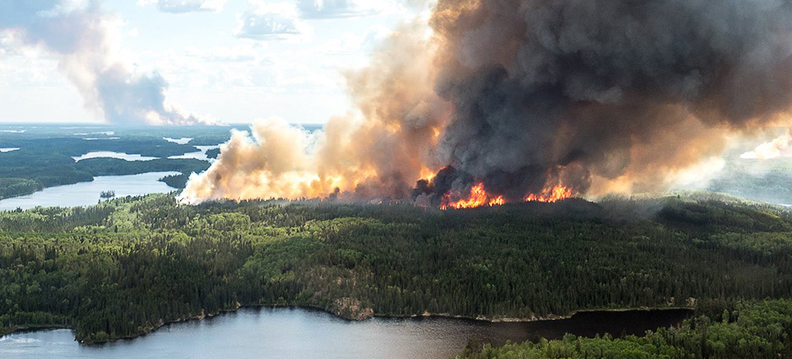Wildfires are forcing the evacuations of citizens from two Sask. First Nations.
On Thursday, approximately 440 members of the Shoal Lake Cree Nation were evacuated to Prince Albert.
“An evacuation order was something we did not wish to have to call. It is a very traumatic ordeal for our people, but we need to keep the health, wellness, and safety of all our people front and center. We have mobilized other available response and support measures to join the efforts to fight the fires and to monitor the fire situation and secure our members and community residences, property and assets,” Chief Marcel Head of Shoal Lake Cree Nation. “For the second time this summer, we are doing all what we possibly can to assure our people and to give them some measure of comfort in a stressful situation.”
On Monday, the Red Earth Cree Nation stated it would evacuate 200 Priority One members, those who would be most impacted by smoky conditions. Those evacuees will be temporarily sheltered in Saskatoon and Regina.
“We are thankful for the planning and preparations by our Emergency Response Team that ensured air purifiers were available to each home, which were put in place after the wildfires and smoke conditions over this past summer. The air purifiers have given our members and residents some relief from the smoke,” Chief Fabian Head of Red Earth Cree Nation said.
The fires and smoke that are coming into the area from the Crackling River and the foothills of the Pasquia Hills are closer to our communities than the Bell Fire, which has increased to 46,500 hectares from Sunday.
“We are deeply concerned by the threat of the wildfires to our territories, ancestral lands, and resources. Our economies are dependent on a healthy and vibrant territorial land base for our people, and for the animals, birds, fish, plants, insects and waters. We are communities that follow the ‘Cree way of life’ and we continue to be based on a hunter-gatherer-based economy. If the province does not put more resources into fighting the wildfires, our communities will suffer from its impacts for years to come,” said Chief Marcel Head.
